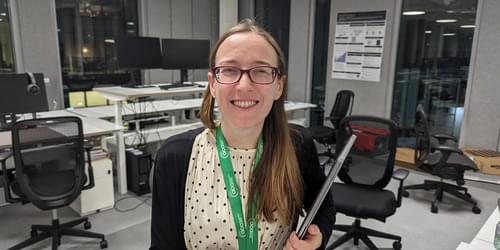Kathryn Tunyasuvunakool grew up surrounded by scientific activities carried out at home by her mother—who went to university a few years after Tunyasuvunakool was born. One day a pendulum hung from a ceiling in her family’s home, Tunyasuvunakool’s mother standing next to it, timing the swings for a science assignment. Another day, fossil samples littered the dining table, her mother scrutinizing their patterns for a report. This early exposure to science imbued Tunyasuvunakool with the idea that science was fun and that having a career in science was an attainable goal. “From early on I was desperate to go to university and be a scientist,” she says.
Tunyasuvunakool fulfilled that ambition, studying math as an undergraduate, and computational biology as a graduate student. During her PhD work she helped create a model that captured various elements of the development of a soil-inhabiting roundworm called Caenorhabditis elegans, a popular organism for both biologists and physicists to study. She also developed a love for programming, which, she says, lent itself naturally to a jump into software engineering. Today Tunyasuvunakool is part of the team behind DeepMind’s AlphaFold—a protein-structure-prediction tool. Physics Magazine spoke to her to find out more about this software, which recently won two of its makers a Breakthrough Prize, and about why she’s excited for the potential discoveries it could enable.
All interviews are edited for brevity and clarity.
